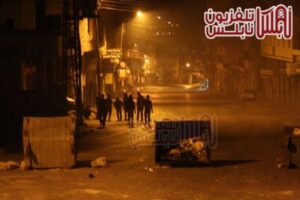Israel’s Politics of Deflection: Theory and Practice
by Richard Falk
Richard Falk is an international law and international relations scholar who taught at Princeton University for forty years. Since 2002 he has lived in Santa Barbara, California, and taught at the local campus of the University of California in Global and International Studies and since 2005 chaired the Board of the Nuclear Age Peace Foundation. He writes that he initiated his blog partly in celebration of his 80th birthday.
General Observations
During my period as the UN Special Rapporteur for Human Rights in Palestine on behalf of the Human Rights Council I have been struck by the persistent efforts of Israel and its strong civil society adjuncts to divert attention from the substance of Palestinian grievances or the consideration of the respective rights of Israel and Palestine under international law. I have also observed that many, but by not means all of those who represent the Palestinians seem strangely reluctant to focus on substance or to take full advantage of opportunities to use UN mechanisms to challenge Israel on the terrain of international law and morality.
This Palestinian reluctance is more baffling than are the Israeli diversionary tactics. It seems clear that international law supports Palestinian claims on the major issues in contention: borders, refugees, Jerusalem, settlements, resources (water, land), statehood, and human rights. Then why not insist on resolving the conflict by reference to international law with such modifications as seem mutually beneficial? Of course, those representing the Palestinians in international venues are aware of these opportunities, and are acting on the basis of considerations that in their view deserve priority. It is disturbing that this passivity on the Palestinian side persists year after year, decade after decade. There are partial exceptions: support for recourse to the International Court of Justice to contest the construction of the separation wall, encouragement of the establishment of the Goldstone Fact-finding Inquiry investigating Israeli crimes after the 2008-09 attacks on Gaza, and the Human Rights Council’s Independent International Fact-finding Mission on Israeli settlement expansion (report 22 March 2012). But even here, Palestinian officialdom will not push hard to have these symbolic victories implemented in ways that alter the behavioral realities on the ground, and maybe even if they did do their best, nothing would change.
On the Israeli side, diversion and the muting of legal and legitimacy claims, is fully understandable as a way to blunt challenges from adversary sources: seeking to have the normative weakness of the Israeli side offset by an insistence that if there is to be a solution it must be based on the facts on the ground, whether these are lawful or not, and upon comparative diplomatic leverage and negotiating skill in a framework that is structurally biased in favor of Israel. The recently exhumed direct negotiations between the Palestinian Authority and the Government of Israel exemplify this approach: proceeding despite the absence of preconditions as to compliance with international law even during the negotiations, reliance on the United States as the convening intermediary, and the appointment by President Obama of an AIPAC anointed Special Envoy (Martin Indyk), the latter underscoring the absurd one-sidedness of the diplomatic framework. It would seem that the Palestinians are too weak and infirm to cry ‘foul,’ but merely play along as if good natured, obedient, and frightened schoolchildren while the bullies rule the schoolyard.
Such a pattern is discouraging for many reasons: it weights the diplomatic process hopelessly in favor of the materially stronger side that has taken full advantage of the failure to resolve the conflict by grabbing more and more land and resources; it makes it virtually impossible to imagine a just and sustainable peace emerging out of such a process at this stage; it plays a cruel game in which the weaker side is almost certain to be made to seem unreasonable because it will not accept what the stronger side is prepared to offer, which is insultingly little; and it allows the stronger side to use the process and time interval of the negotiations as an opportunity to consolidate its unlawful claims, benefitting from the diversion of attention.
There are two interwoven concerns present: the pernicious impacts of the politics of deflection as an aspect of conflictual behavior in many settings, especially where there are gross disparities in hard power and material position; the specific politics of deflection as a set of strategies devised and deployed with great effectiveness by Israel in its effort to attain goals with respect to historic Palestine that far exceed what the UN and the international community had conferred. The section that follows deals with the politics of deflection only in the Israel/Palestine context
The Specific Dynamics of the Politics of Deflection
–anti-Semitism: undoubtedly the most disturbing behavior by Israel and its supporters is to deflect attention from substance in the conflict and the abuses of the occupation is to dismiss criticism of Israel as anti-Semitism or to defame the critic as an anti-Semite. This is pernicious for two reasons: first, because it exerts a huge influence because anti-Semitism has been so totally discredited, even criminalized, in the aftermath of World War II that featured the exposure and repudiation of the Holocaust; secondly, because by extending the reach of anti-Semitism to address hostile commentary on Israel a shift of attention occurs—away from the core evil of ethnic and racial hatred to encompass the quite reasonable highly critical appraisal of Israeli behavior toward the Palestinian people by reference to overarching norms of law and morality.
This misuse of language to attack Jewish critics of Israel by irresponsible characterizations of critics as ‘self-hating Jews.’ Such persons might exist, but to infer their existence because of their criticisms of Israel or opposition to the Zionist Project functions as a means to move inhibit open discussion and debate, and to avoid substantive issues. It tends to be effective as a tactic as few people are prepared to take the time and trouble to investigate the fairness and accuracy of such allegations, and so once the shadow is cast, many stay clear of the conflict or come to believe that criticism of Israel is of less interest than are the pros and cons of the personal accusations. Strong Zionist credentials will not insulate a Jew from such allegations as Richard Goldstone discovered when he was vilified by the top tier of Israeli leadership after chairing a fact-finding inquiry that confirmed allegations of Israeli war crimes in the course of Operation Cast Lead. Even the much publicized subsequent Goldstone ‘retraction’ did little to rehabilitate the reputation of the man in Israeli eyes, although his change of heart as to the main allegation of his own report (a change rejected by the other three members of the inquiry group), was successfully used by Israeli apologists to discredit and bury the report, again illustrating a preference for deflection as opposed to substance.
Even such global moral authority figures as Archbishop Desmond Tutu and Jimmy Carter have been called anti-Semites because they dared to raise their voices about the wrongs that Israel has inflicted on the Palestinian people, specifically identifying the discriminatory legal structures of the occupation as an incipient form of apartheid.
In the unpleasant course of being myself a frequent target of such vilifying techniques, I have discovered that it is difficult to make reasoned responses that do not have the effect of accentuating my plight. To fail to respond leaves an impression among some bystanders that there must be something to the accusations or else there would be forthcoming a reasoned and well-evidenced response. To answer such charges is to encourage continuing attention to the allegations, provides the accusing side with another occasion to repeat the charges by again cherry picking the evidence. NGOs such as UN Watch and UN Monitor specialize in managing such hatchet jobs.
What is more disturbing than the attacks themselves than their resonance among those holding responsible positions in government and international institutions, as well as widely respected liberal organizations. In my case, the UN Secretary General, the U.S. ambassadors at the UN in New York and Geneva, the British Prime Minister, and the Canadian Foreign Minister. Not one of these individuals bothered to check with me as to my response to the defamatory allegations or apparently took the trouble to check on whether there was a credible basis for such damaging personal attacks. Even the liberal mainstream human rights powerhouse, Human Rights Watch, buckled under when pressured by UN Watch, invoking a long neglected technical rule to obtain my immediate removal from a committee, and then lacked the decency to explain that my removal was not ‘a dismissal’ when
UN Watch claimed ‘victory,’ and proceeded to tell the UN and other bodies that if Human Rights Watch had expelled me, surely I should be expelled elsewhere. I learned, somewhat bitterly, that HRW has feet of clay when it came to standing on principle in relation to someone like myself who has
been the victim of repeated calumnies because of an effort to report honestly and accurately on Israeli violations of Palestinian rights.
–Auspices/Messenger: A favorite tactic of those practicing the politics of deflection is to contend that the auspices are biased, and thus whatever substantive criticisms might issue from such an organization should be disregarded. Israel and the United States frequently use this tactic to deflect criticism of Israel that is made in the UN System, especially if it emanates from the Human Rights Council in Geneva or the General Assembly. The argument is reinforced by the similarly diversionary claim that Israeli violations are given a disproportionately large share of attention compared to worse abuses in other countries, especially those in sub-Saharan Africa. Also, there is the complementary complaint that some of the members of the Human Rights Council themselves have appalling human rights records that disqualify them from passing judgment, thereby exhibiting the hypocrisy of criticisms directed at Israel.
It is tiresome to respond to such lines of attack, but important to do so.
First of all, in my experience, the UN has always made fact-based criticisms of Israeli policies and practices, appointed individuals with strong professional credentials and personal integrity, and painstakingly reviewed written material prior to publication to avoid inflammatory or inaccurate criticisms. Beyond this, Israel is almost always given an opportunity to review material critical of its behavior before it is released, and almost never avails itself of this chance to object substantively. In my experience, the UN, including the Human Rights Council, leans over backwards to be fair to Israel, and to take account of Israeli arguments even when Israel declines to make a case on its own behalf.
Further, the heightened attention given to Palestinian grievances is a justified result of the background of the conflict. It needs to be remembered that it was the UN that took over historic Palestine from the United Kingdom after World War II, decreeing a partition solution in GA Resolution 181 without ever consulting the indigenous population, much less obtaining their consent. The UN approach in 1947 failed to solve the problem, consigning Palestinians to decades of misery due to the deprivation of their fundamental rights as of 1948, the year of the nakba, a national experience of catastrophic dispossession. Through the years the UN has provided guidelines for behavior and a peaceful solution of the conflict, most notably Security Council Resolutions 242 and 338, which have not been implemented. The UN has for more than a decade participated in The Quartet tasked with implementing ‘the roadmap’ designed to achieve peace, but not followed, allowing Israel to encroach more and more on the remnant of Palestinian rights via settlement expansions, wall construction, residence manipulations, apartheid administrative structures, land confiscations, house demolitions. The UN has been consistently frustrated in relation to Palestine in a manner that is unique in UN experience, making the issue a litmus test of UN credibility to promote global justice and overcome the suffering of a dispossessed and occupied people.
Usually, the attack on the sponsorship of a critical initiative is reinforced by scathing screed directed at anyone prominently associated with the undertaking. The attacks on the legendary Edward Said, the one Palestinian voice in America that could not be ignored, were rather vicious, often characterizing this most humanist among public intellectuals, as the ‘Professor of Terror.’ The most dogmatic defenders of Israel never tired of trying to make this label stick by showing a misleadingly presented picture of Said harmlessly throwing a stone at an abandoned guard house during a visit to southern Lebanon not long before his death as if a heinous act of violence against a vulnerable Israeli soldier. This effort to find something, however dubious, that could be used to discredit an influential critic disregard the ethics of fairness and decency. In my case, an accidentally posted cartoon, with an anti-Semitic angle has been endlessly relied upon by my most mean-spirited detractors, although any fair reading of my past and present scholarship, together with the blog psot in which it appeared in which Israel is not even mentioned, would conclude that its sole purpose of highlighting the cartoon was to defame, and by so doing, deflect.
In like manner, the use of the label ‘terrorist’ has been successfully manipulated by Israel in relation to Hamas to avoid dealing with its presence as the elected governing authority in Gaza or in responding to its offers of long-term coexistence provided the blockade of Gaza is ended and Israeli forces withdraw to 1967 borders. The Hamas demands are really nothing more than a call for the implementation of international law and UNSC resolutions, and thus highly reasonable from the perspective of fairness to both sides, but Israel is not interested in such fairness, and hence avoids responding to the substance of the Hamas proposals by insisting that it is unwilling to respond to a terrorist organization. Such a stubborn position is maintained, and supported by the United States and EU, despite Hamas’ successful participation in an electoral process, its virtual abandonment of violent resistance, and its declared readiness for diplomatic accommodations with Israel and the United States.
If the messenger delivering the unwelcome message lacks prominence or the campaign of vilification does not altogether succeed, then at governmental levels, Israel, and the United States as well, will do its best to show contempt for criticism for the whole process by boycotting proceedings at which the material is presented. This has been my experience at recent meetings of the Human Rights Council and the Third Committee of the General Assembly where my reports are presented on a semi-annual basis and Israel and the United States make it a point to be absent. There is an allocation of the work of deflection: at the governmental end substance is often evaded by pretending not to notice, while pro-Israeli NGOs pound away, shamelessly repeating over and over the same quarter truths, which often are not even related to their main contention of biased reporting. In my case, UN Watch harps on my supposed membership in the ranks of 9/11 conspiracy theorists, an allegation that I have constantly explained to be contrary to my frequently articulated views on the 9/11 attacks. It makes no difference what I say or what are the facts of my position once the defamatory attack has been launched.
Diplomatic Deflection: The entire Oslo peace process, with its periodically revived negotiations, has served as an essential instrument of deflection for the past twenty years. It diverts the media from any consideration of Israel’s expansionist practices during the period that the parties are futilely negotiating, and succeeds in making critics and criticism of Israel’s occupation policies seem obstructive of the overarching goal of ending the conflict and bringing peace to the two peoples.
Geopolitical Deflection: Although not solely motivated by the goals of deflection, the bellicose focus by Israel on Iran’s nuclear program, has seemed so dangerous for the region and the world that it has made Palestinian grievances appear trivial by comparison. It has also led outside political actors to believe that it would be provocative to antagonize Israeli leadership in relation to Palestine at a time when there were such strong worries that Israel might attack Iran or push the United States in such a direction. To a lesser extent the preoccupations with the effects of the Arab upheavals, especially in Syria and Egypt, have had the incidental benefit for Israel of diminishing still further regional and global pressures relating to Palestinian grievances and rights. This distraction, a kind of spontaneous deflection, has given Israel more time to consolidate their annexationist plans in the West Bank and Jerusalem, which makes the still lingering peace image of a two-state solution a convenient mirage, no more, no less.
A Concluding Comment: Overall, the politics of deflection is a repertoire of techniques used to shift the gaze away from the merits of a dispute. Israel has relied on these techniques with devastating effects for the Palestinians. The purpose of my analysis is to encourage Palestinians in all settings to do their best to keep the focus on substance and respective rights. Perhaps, it is time for all of us to learn from the brave Palestinian hunger strikers whose nonviolent defiance of Israeli detention abuse operated with laser like intensity to call attention to prison and administrative injustice. Unfortunately, the media of the world was silent, including those self-righteous liberal pundits who had for years urged the Palestinians to confront Israel nonviolently, and then sit back, and find satisfaction in the response from Tel Aviv. Waiting for Godot is not a matter of patience, but of ignorance!






